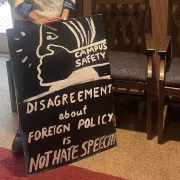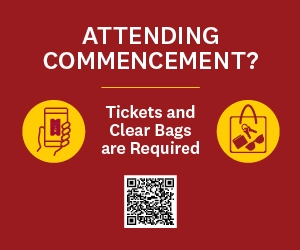Life can be stressful — and being a college student comes with a lot of overwhelming responsibilities. However, one of the ways students can relieve this burden is by going to USC’s improvised comedy shows.
At USC there are many improvised comedy clubs like Spoiler Alert, The Merry Men, Second Nature Improv and various others. Adelyn Ledbetter, a fan of USC’s comedy clubs and a sophomore majoring in English, explains how clubs put on an hour-long show on campus in the Tutor Campus Center and ask the crowd for a genre and a title. With the audience suggestions, they then perform a “never seen before movie” and take little commercial breaks where they play funny improv games.
In Neuroscience News, author Sara Henning-Stout compiled the results of a comprehensive study of 29 diverse studies from nine countries. Nearly 3,000 participants who were diagnosed with depression, anxiety or both saw a decrease in their symptoms after attending a comedy show. This result illustrates how humor therapy can be a viable option for patients with these symptoms.
Ledbetter is diagnosed with post-traumatic stress disorder and anxiety and said that attending comedy shows has helped with her mental health.
“Going to these shows is a way for me to know ‘Oh, I’m going to laugh and I’m going to do something fun’ even if it’s like ‘I don’t want to leave my room.’” For her, going to Spoiler Alert’s show every Tuesday at 10 p.m. is something reliable and makes her happy.
College students experience a lot of overwhelming experiences. Ledbetter said that while studying for midterms she “falls into a hole sometimes, and [she] need[s] to take a break and get [her] mind off of it.”
Every week on Tuesday night Ledbetter invites her friends to come with her and they let loose and watch the show. She says it is always a good time because it’s just something in the middle of the week, a time when you don’t go out to see people as much. It’s an experience full of laughter she is able to share with her friends.
College can also be lonely, and finding a community can be hard for some students. According to a 2011 study by author Marc Gelkopf in The National Library of Medicine, making a group laugh is different than making an individual laugh, and the use of laughter in groups can help with the feeling of social alienation. Laughter also enhances social relations and rewards others’ actions, thus encouraging ongoing social activities.
Furthermore, Gelkopf explains that PTSD, major depression, bipolar disorder, panic disorder and obsessive compulsive disorder are conditions that often “disrupt a person’s motivation, thought processes, emotions, mood, interpersonal relationships and behaviors.” Treatment can be difficult to seek out, but some interventions include medication and establishing a positive environment.
Gelkopf suggested that humor with conventional treatment could be used to help “clients cope with symptoms, improving rehabilitation through its emotional, cognitive, social and physiological impact as well as reinforcing and facilitating therapy and client empowerment.”
Ledbetter recalls having “really, really bad anxiety” her freshman year and noticed her symptoms less and less once she started going to comedy shows. Going to these clubs on campus is a great way to find relief after a stressful day. If you ever want to find a group to talk to or share an interest in, comedy is the way to go.









